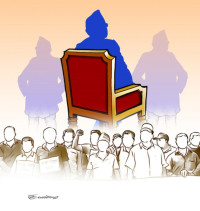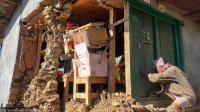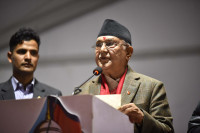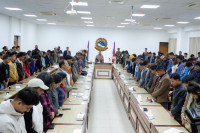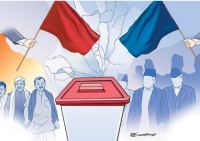Opinion
Redefining nationality
It is necessary to change the notion of nationality as per people’s aspirations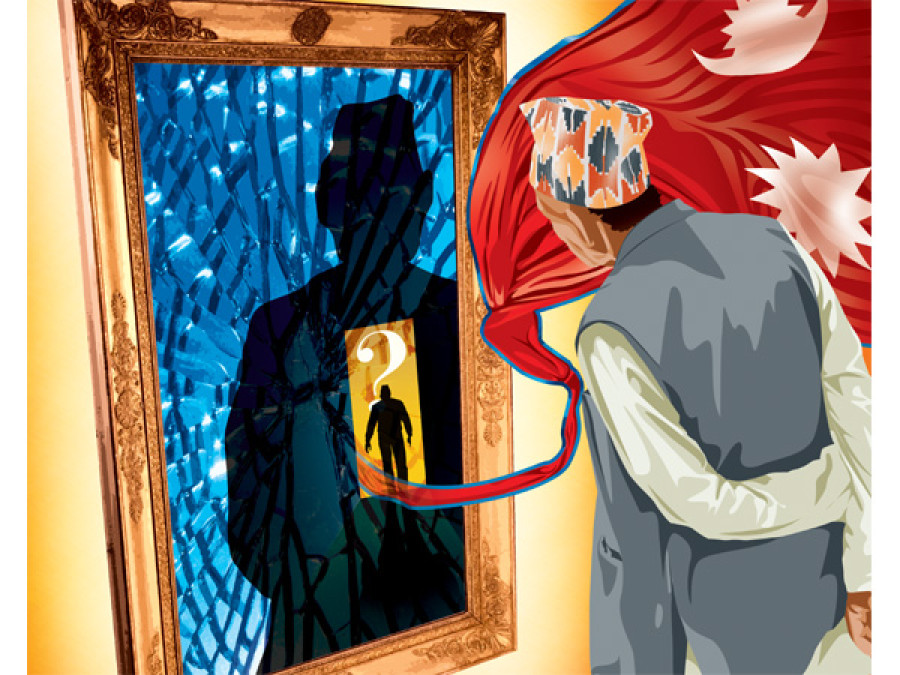
Ram Bahadur Thapa Magar
The notions of nationality during the Panchayat era was entirely based on the cultures of Khas-Aryas, may it be in terms of religion, language or dress. Other ethnicities never felt part of the Nepali state during that era. Then there was the 1990 People’s Movement, and although the aspiration of the people was to have a secular and equal state, the Constitution of the Kingdom of Nepal 1990 declared Nepal a Hindu Kingdom. Moreover, the 1990 constitution failed to acknowledge all the different ethnicities and gave preference to Khas-Aryas, due to which the indigenous and marginalised groups could not own the document. Indigenous and Madhesi people rejected the hegemony of the Khas language, which was enshrined in the constitution as the official language. Speakers of Newari, Maithili, Bhojpuri and other languages stood up against this provision.
By declaring the country a Hindu state, the constitution marginalised followers of other religions as well. It provoked indigenous, non-Hindu and non-Khas Nepalis. Since then, the marginalised groups such as the Madhesis, women and Dalits, among others, have been struggling for their rights. These struggles have been for the sake of transforming the meaning and forms of traditional nationality. Still it was not until the beginning of the ‘People’s War’ that the meaning and forms of nationality started to change in the country. After the declaration of the Interim Constitution of Nepal, the meaning and forms of nationality have occupied a wider space.
Imposed symbols
Prithvi Narayan Shah had envisioned making Nepal the ‘Asal Hindustan’, and thus the Hindu religion became synonymous with nationality. Shah invaded Kirat, Limbuwan, Magarat, among other regions, and imposed the Khas language and Hindu religion after taking over these states. This was the beginning of discrimination against other nationalities in Nepal. The state adopted one language, one religion and one culture as the basis for nationality.
The traditional meaning and definition of nationality was highly emphasised during the Panchayat and slogans like ‘hamro raja hamro des, eautai bhasa eautai bhes’ were promoted. Such slogans were meant to stress that the state belonged to the king, and that his language (Khas), dress (daura suruwal) and religion (Hinduism) were the symbols of nationality. This definition of nationality ignored all other languages, cultures, religions and ethnic identities that existed in the country.
In the past, the concept of nationality in Nepal was only limited to the Hindu religion, culture and rituals. Now, the state has become a secular republic, but it still promotes and celebrates all the traditional norms and values of the Hindu philosophy.
It is not possible to turn back the march of time. The so-called common norms and values have started to break down. Monarchy has been abolished. But the significance of the symbols of national unity in the past is still being discussed. The continued importance given to the Dashain festival has been questioned by non-Hindus. Only Hindus celebrate Dashain, but non-Hindus feel the compulsion to celebrate it as well. One should not be forced to embrace the identity of others in the name of nationality. Many indigenous and non-Hindu festivals only get a one-day official holiday, whereas five days of holiday are allotted to Dashain.
Different but equal
It is necessary to change the meaning, forms and definition of nationality as per people’s aspirations. Nationality will be stronger if the state provides equal opportunities and facilities to all communities, cultures, religions and festivals. It will be more secure if the people learn to respect both topi and dhoti equally. We should respect not only sari and cholo but also haku patasi, chhitko gunyu and gado. Inclusion of and respect for all the ethnic groups and their expressions are the true signs of national unity. In state restructuring, the demarcation of the provinces on the basis of ethnicity with one province in the Madhes would foster national unity.
In the political landscape of the country, the issue of identity is occupying a larger space than that of political ideology. Some people might feel that ideology and identity are contradictory, but that is not the case. It is important to provide space for those who were exploited and discriminated against in the past. Earlier, monarchy was the symbol of nationality. But now, the diversity of the country has been acknowledged. We can debate but cannot ignore today’s reality. The state cannot be stronger by the one-dimensional nationality of the past. It is necessary to change the meaning, definition and forms of nationality by incorporating the rich diversity of the country.
Magar is former Constituent Assembly member and an advocate




 14.12°C Kathmandu
14.12°C Kathmandu
